|
The coronavirus pandemic has played out very differently in different parts of the world. In Africa, for example, numbers of infections and fatality rates remain comparatively low. Yet countries on the continent haven’t been forging their own responses. Instead they have been importing wholesale what’s been done elsewhere. Alex Ezeh and Sharon Fonn explain that African scientists have not been able to deliver what Africa needs because
governments have starved their institutions of crucial funds for many years.
In other parts of the world, the current attention is focused on antibody tests and how they might be the answer to safely returning to normal life, but it might not be that simple. When a body is exposed to a new pathogen, part of the response launched by the immune system is the production of specific antibodies, which are present in blood after infection. The reason everyone is so interested in antibody testing is because for many diseases, antibodies indicate immunity to that pathogen. However, it’s not yet clear whether SARS-CoV-2 antibodies confer immunity to COVID-19. Immunologists Shayan Sharif and Byram Bridle share insights into the promises and pitfalls of antibody testing.
|
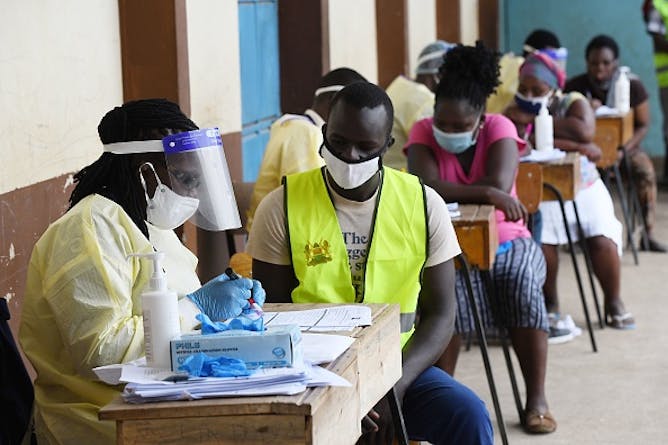
Health care workers testing people in Nairobi, Kenya during a mass testing exercise for COVID-19.
Photo by SIMON MAINA/AFP via Getty Images
Alex Ezeh, Drexel University; Sharon Fonn, University of the Witwatersrand
Africa needs to be better prepared to deal with future pandemics. That should start with a re-assessment of how countries invest in – and support – local research.
|
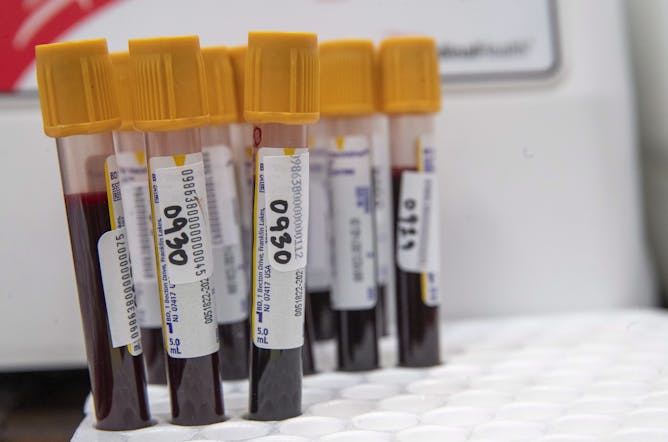
It’s not yet clear whether antibodies in the blood of patients who have been infected with SARS-CoV-2 indicate immunity. Above: blood specimens for COVID-19 antibody tests.
(AP Photo/Mary Altaffer)
Shayan Sharif, University of Guelph; Byram W. Bridle, University of Guelph
Immunity to COVID-19 may be complicated. Here are the promises and pitfalls of antibody tests.
|
Health + Medicine
|
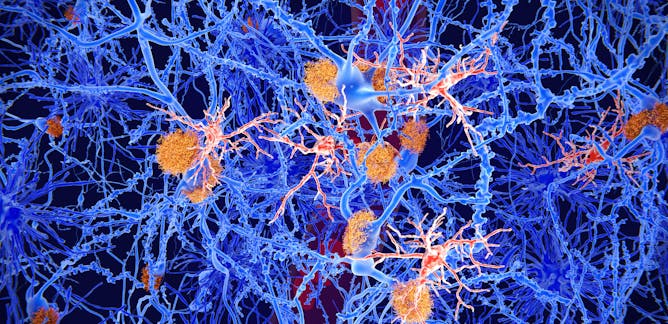
Eleftheria Kodosaki, Cardiff Metropolitan University
Between 10-15% of all cells within the brain are microglia.
| |
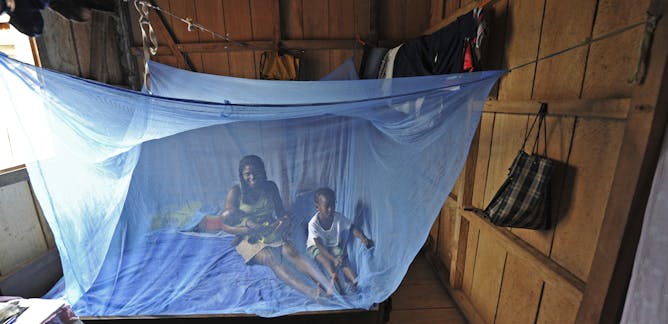
Eunice Anyango Owino, University of Nairobi
The pandemic coincides with the long rainy season in Kenya. Rain increases mosquito breeding sites, vector density and thus transmission of mosquito-borne diseases.
|
|
|
Science + Technology
|

Gareth Dorrian, University of Birmingham; Ian Whittaker, Nottingham Trent University
To intercept the ISS, the capsule must match the station’s speed, altitude and inclination.
| |

Arjan Mann, Carleton University; Bryan Gee, University of Toronto; Jason D. Pardo, University of Calgary
A very early mammal ancestor is one of the most recent discoveries at the Joggins Fossil Cliffs in Nova Scotia. This new finding sheds further light on theories of mammalian evolution.
|
|
|
Environment + Energy
|
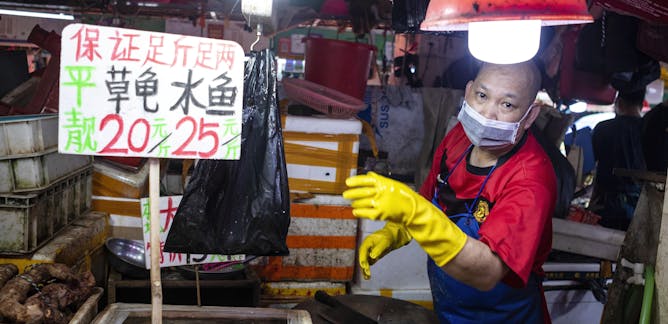
Alex Bowmer, London School of Hygiene & Tropical Medicine
A full ban on eating wildlife in China probably isn’t possible, and could encourage unregulated underground markets.
| |
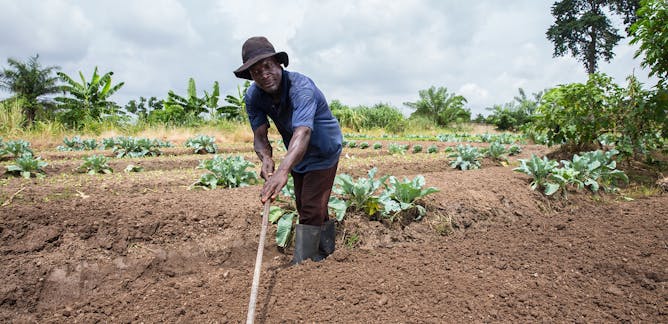
Kabila Abass, Kwame Nkrumah University of Science and Technology (KNUST); Kwadwo Afriyie, Kwame Nkrumah University of Science and Technology (KNUST)
Policies should protect arable land from urban encroachment and make peri-urban households less vulnerable.
|
|
|